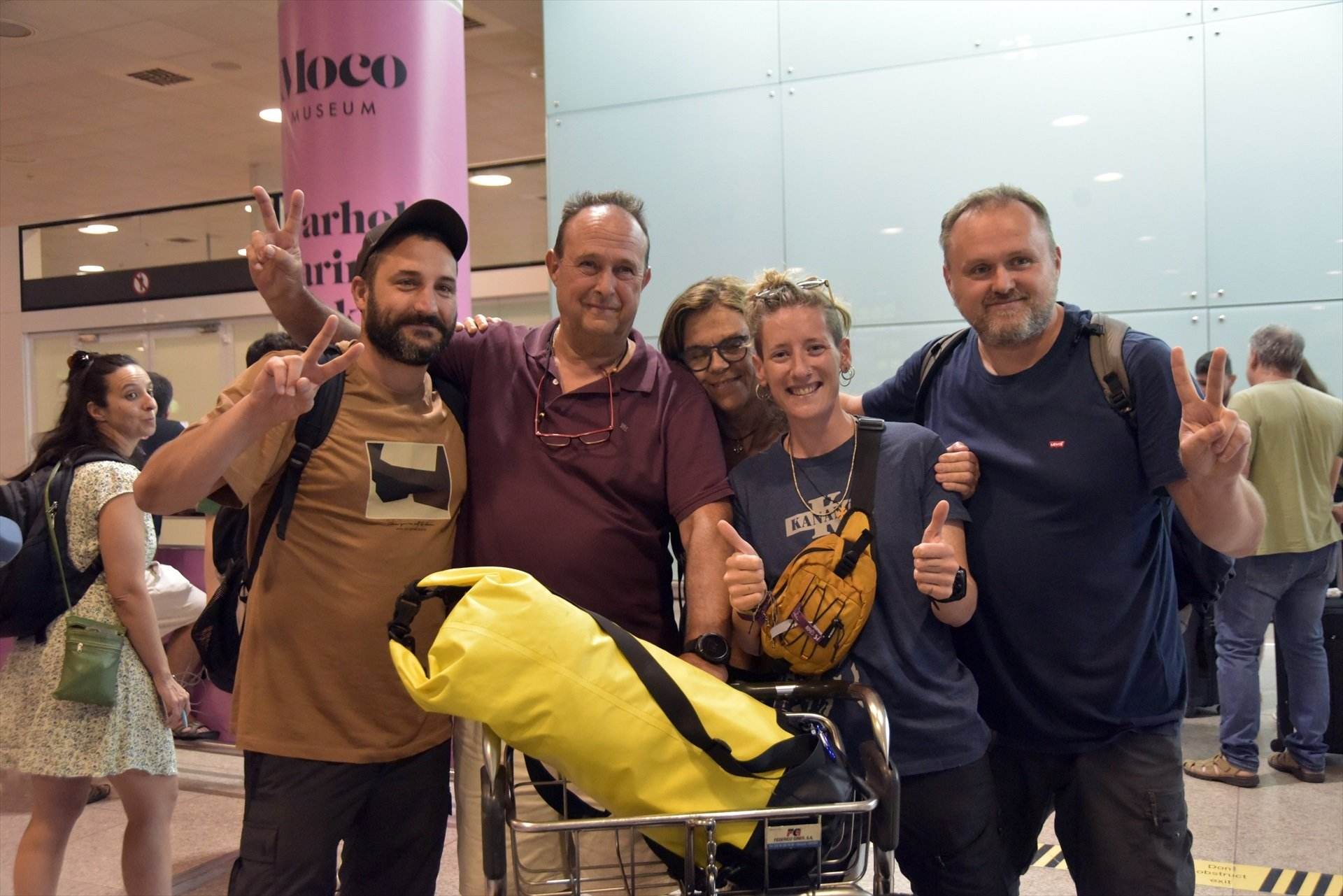The Catalan tourists who had been trapped in Ethiopia since August 2nd have finally landed at Barcelona's El Prat airport, around 5:45pm this Monday afternoon. The Catalan travellers were the last to arrive, after other members of the group had arrived this morning in Madrid and Valencia. Thus, almost two weeks after requesting their evacuation from Ethiopia due to the outbreak of an armed conflict between regional militias and the army in the country, the tourists have been able to return to Catalonia and reunite with their relatives who were impatiently awaiting them.
The journey home was not easy, and in fact it began last Friday, when they were evacuated to a military base and later transferred to the country's capital, Addis Ababa. From there, they took a flight to the Turkish capital Ankara on Monday, which left late and caused them to miss the connection with the final leg, which was supposed to bring them to Barcelona this morning. Finally, however, they were able to get home a little later with another plane.
Speaking to journalists, the Catalan tourists were relieved to have arrived in Barcelona and gave thanks for the support they have received. On the other hand, they were critical of the Spanish ambassador to Ethiopia, Manuel Salazar, asserting that he only appeared in the city of Addis Ababa "to get his picture taken", once they were already outside the conflict zone. For her part, the tour guide, Noèlia Bertrán, explained that in Ethiopia they feared for their lives: "One night we all locked ourselves in one room in the dark and in silence," she explained.
The group were trapped in the hotel following the outbreak of violence between regional militias and the army in the Amhara region, located in the north of the country. The Fano militias are a heterogeneous armed group that collaborated with Amhara forces during the last Tigray war until their relationship deteriorated due to disagreements over regional security management. The group of 19 Spanish tourists, consisting largely of Catalans, were surprised by the clashes between the armed groups in the north of the country and, despite being able to flee the area most directly affected, were unable to leave the country for about 10 days. There was one child under the age of 13 in the guided group, on a trip organized by the Barcelona-based agency Kananga.
Spanish ministry says it advised against travelling to Ethiopia; the agency denies it
The evacuation was not without controversy. Núria Giménez, one of the Catalan tourists, criticized the institutions and especially the Spanish ambassador to the country, Manuel Salazar Palma, for not offering help. "From the Spanish government they were unable to get in touch with us. I am very disappointed," she told radio station RAC1 on Sunday, noting that it was an influential person in Ethiopia who helped them manage the return to the Spanish state.
For his part, the Spanish foreign minister, José Manuel Albares, celebrated the evacuation and repatriation of tourists, but recalled that the ministry had been advising against travelling to this area for months. "For many months, the foreign ministry advised against travelling to this region," he affirmed. However, the company that had organized the tourists' trip, Kananga, denied this. The director of the agency, Jonás Baños, explained in statements to ACN that they "always" follow the Spanish government's advice. "It was something that happened completely without warning and we didn't expect it. Otherwise, obviously we wouldn't have sent travellers there," he stated.

